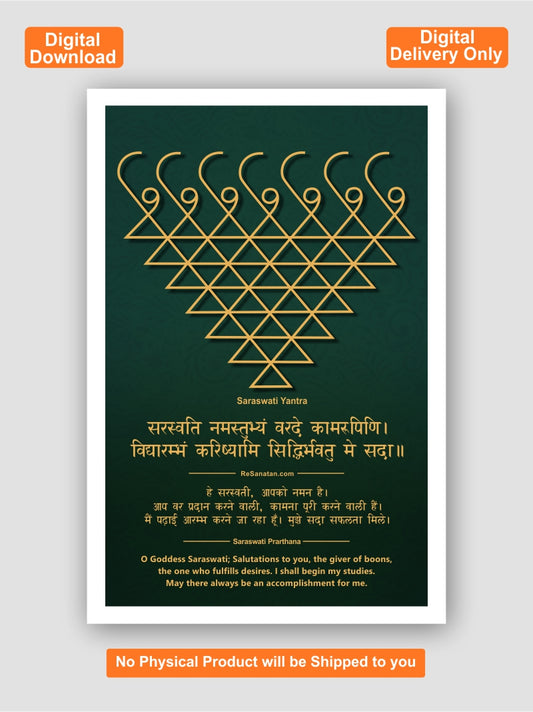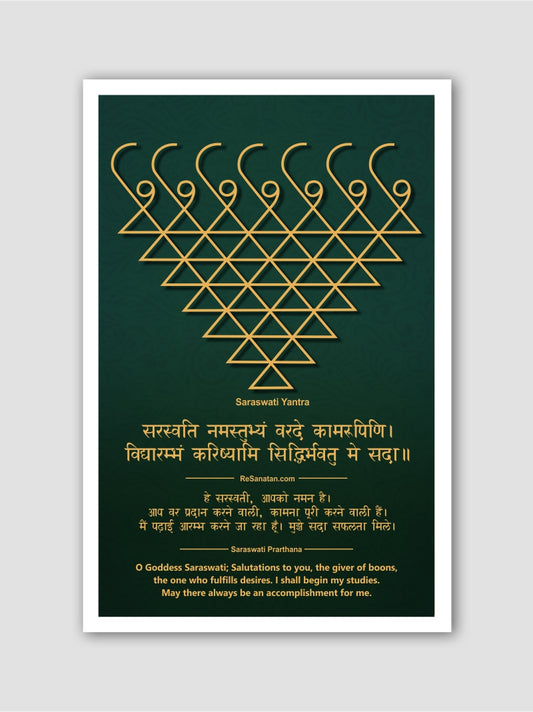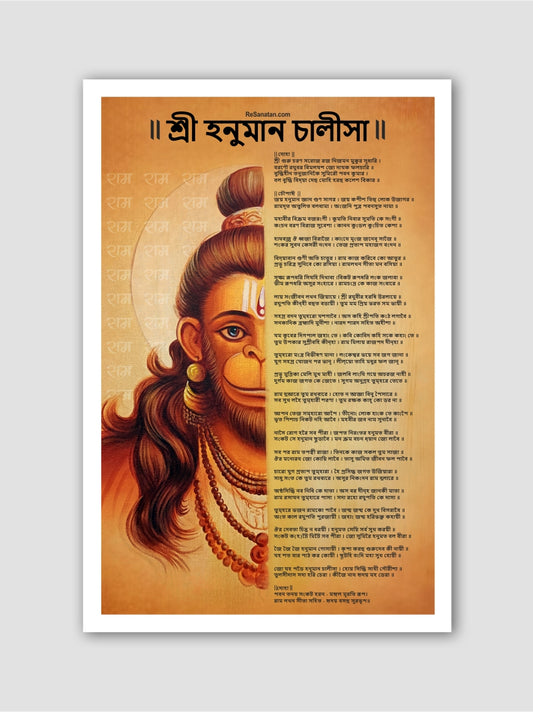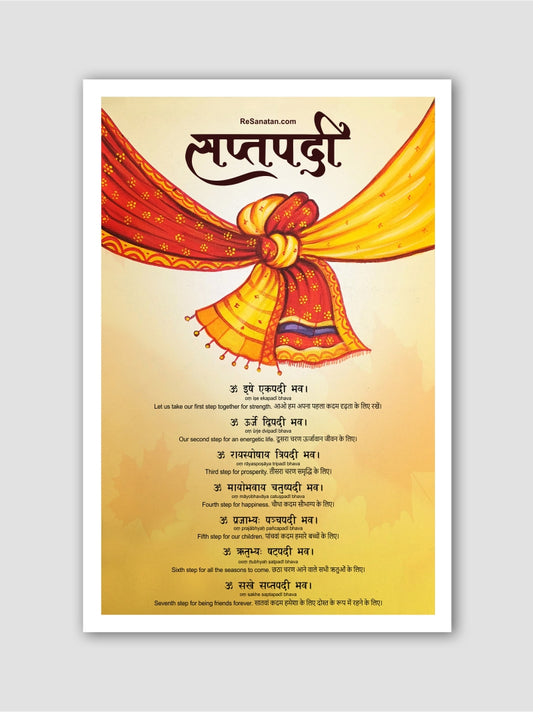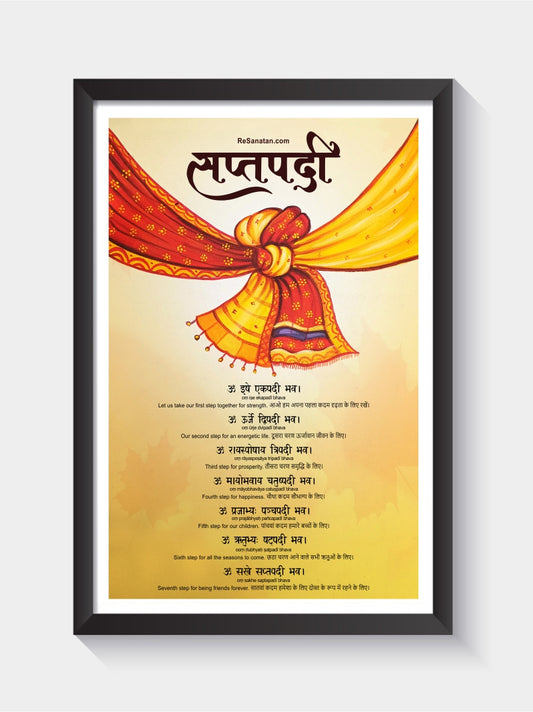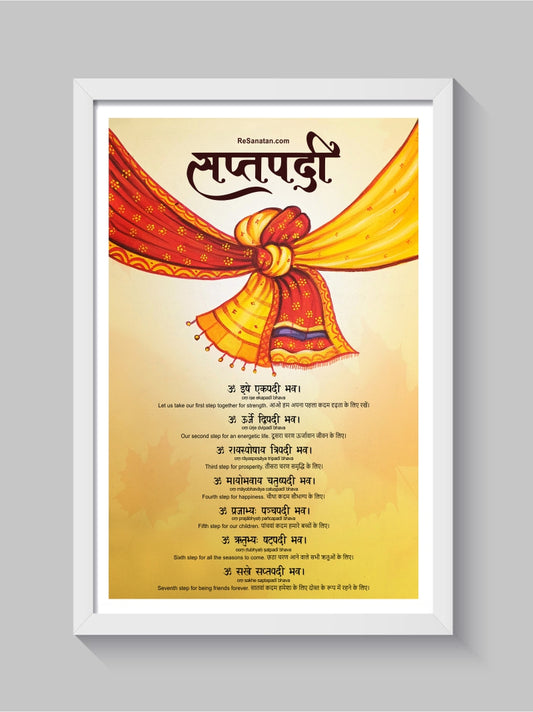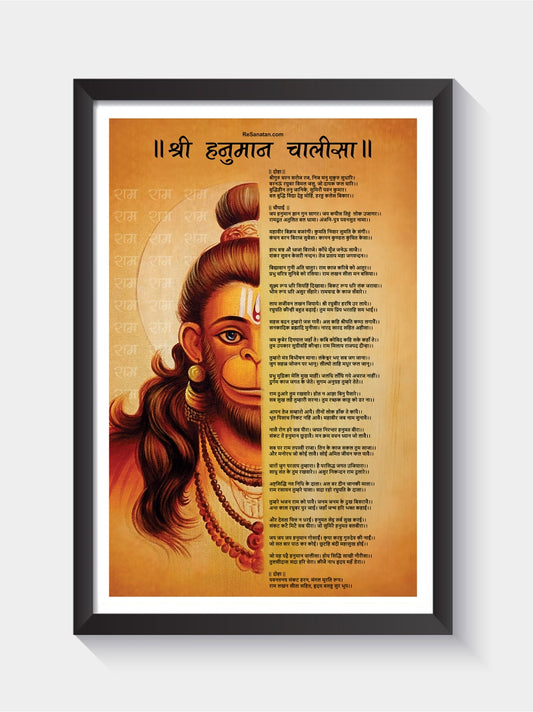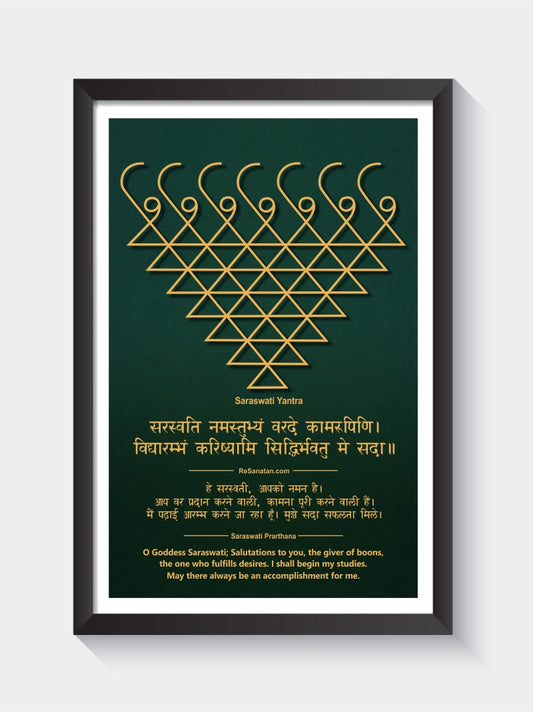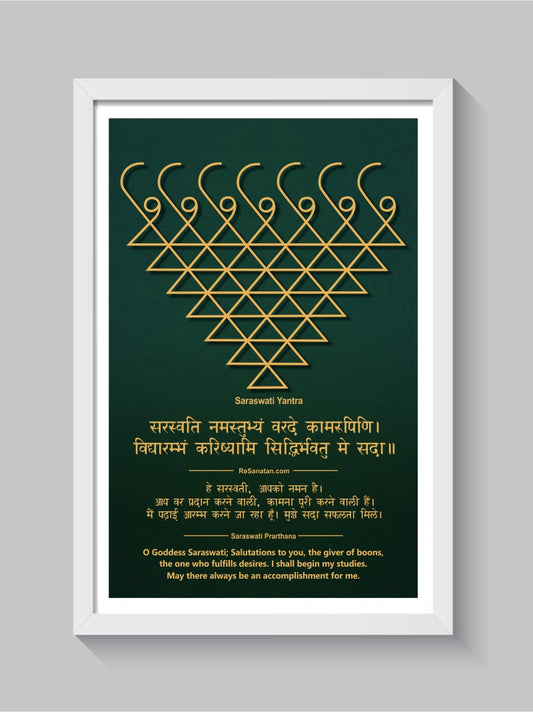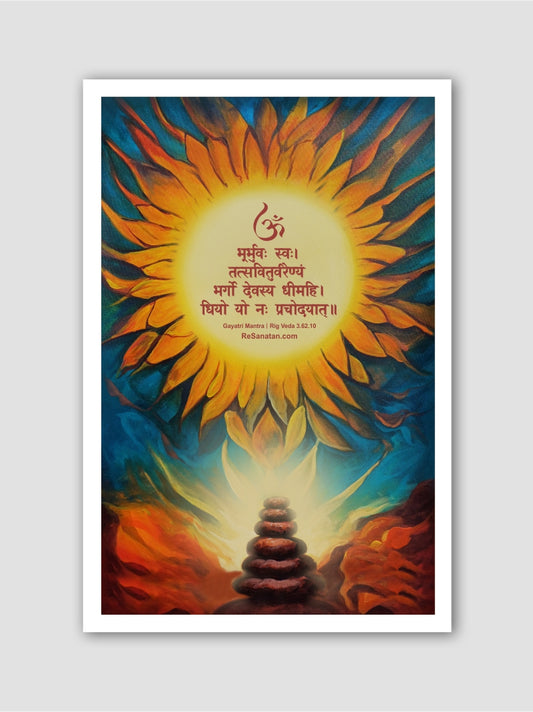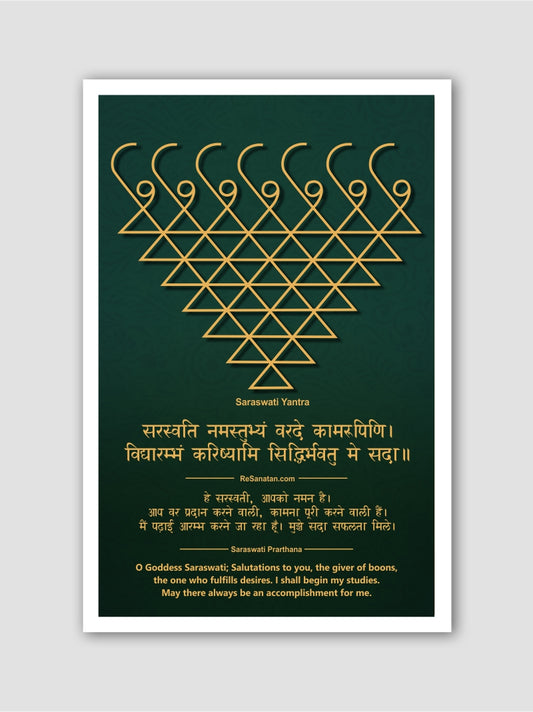What is a Chalisa and its Importance in Hinduism?
In Hinduism, spirituality is often expressed through rituals, scriptures, and devotional prayers. Among these, Chalisa holds a significant place, especially in daily worship. A Chalisa is a hymn consisting of 40 verses (hence the term Chalisa, derived from the Hindi word chalis meaning forty) that praise a deity. Devotees recite it with great devotion and faith, seeking blessings, protection, and divine intervention in their lives. This article delves deeper into what a Chalisa is and its importance in the spiritual framework of Hinduism.
Understanding the Chalisa
A Chalisa is a devotional poem or prayer composed in the praise of a Hindu deity. It typically contains 40 verses, each reflecting different aspects of the deity’s virtues, powers, and stories from mythology. The structure of the Chalisa allows it to be memorized easily, enabling worshippers to recite it regularly, whether in a temple, home, or even during personal meditation.
One of the most famous and widely recited Chalisas is the Hanuman Chalisa, dedicated to Lord Hanuman, a revered figure in Hinduism known for his devotion, strength, and valor. Similarly, other deities like Lord Shiva, Lord Vishnu, Goddess Durga, and Goddess Lakshmi have their respective Chalisas, which are recited by devotees across India and beyond.
Structure of a Chalisa
While the number 40 is a defining feature of a Chalisa, the content within these 40 verses varies according to the deity it addresses. Typically, the structure of a Chalisa includes:
Introduction: The opening verses usually offer salutations and praise to the deity, setting a reverential tone for the rest of the prayer.
Main Body: The core verses narrate the deity's virtues, stories, and attributes, focusing on their divine powers, compassion, protection, and their role in the cosmic balance.
Conclusion: The closing verses often include a humble plea for the deity’s blessings and protection for the reciter and the entire world. It may also contain prayers for personal or family well-being.
The language used in a Chalisa is often simple and easy to understand, making it accessible to a wide range of worshippers, regardless of their education or background.
Importance of Chalisa in Hinduism
Chalisa holds a vital role in Hindu devotional practices for various reasons. Here are a few key aspects highlighting its importance:
1. Devotion and Faith
Chalisa is a form of bhakti (devotion) that strengthens the bond between the devotee and the deity. Reciting a Chalisa is an act of surrender, where the worshipper expresses their love and reverence for the deity, relying on their divine grace to overcome obstacles in life.
2. Spiritual Discipline
The daily recitation of a Chalisa is a spiritual discipline that brings regularity to one's prayer routine. This discipline is akin to sadhana (spiritual practice), helping devotees stay grounded in their spiritual journey. The repetition of these verses fosters a sense of peace, focus, and inner calm.
3. Purification of the Mind
Chanting or listening to a Chalisa has a purifying effect on the mind. The repetition of sacred words and verses helps eliminate negative thoughts, reduce anxiety, and promote mental clarity. It creates a positive vibrational energy that enhances concentration and spiritual growth.
4. Storytelling and Cultural Preservation
Each Chalisa encapsulates a treasure of mythological stories and moral lessons. These verses serve as a means to pass on ancient stories of deities, their avatars, and their actions, preserving the rich cultural and religious heritage of Hinduism for future generations. It helps devotees, especially younger ones, understand the significance of deities like Lord Rama, Lord Krishna, or Goddess Durga.
5. Healing Power
Many devotees believe that reciting a Chalisa brings physical, emotional, and spiritual healing. This belief stems from the idea that divine intervention can help alleviate suffering, cure diseases, and grant relief from hardships. For instance, the Hanuman Chalisa is often recited to protect against illness, accidents, or fear, while the Shri Durga Chalisa is believed to protect devotees from negative energies and evil forces.
6. Karma and Devotion
In Hinduism, karma plays a central role in shaping an individual’s destiny. Reciting Chalisas with devotion is considered a way of accumulating good karma. Through these devotional practices, devotees seek divine assistance in overcoming the effects of negative karma while aspiring to live a righteous and virtuous life.
7. Connection with the Divine
Chalisa acts as a conduit for the devotee to connect with the divine. The continuous repetition of the deity’s name and virtues through the verses creates a sacred space in the heart and mind of the devotee, facilitating a deeper connection with the divine energy. It is a form of prayer that helps one transcend the physical realm and tap into higher consciousness.
Significance of Popular Chalisas
Here are a few examples of popular Chalisas and their significance in Hinduism:
1. Hanuman Chalisa
The Hanuman Chalisa is perhaps the most widely known and recited Chalisa. Composed by Tulsidas, this prayer praises Lord Hanuman’s strength, devotion to Lord Rama, and his selfless service. It is often recited to overcome fear, dispel evil forces, and seek protection from illnesses and obstacles.
2. Durga Chalisa
The Durga Chalisa is dedicated to Goddess Durga, the embodiment of feminine power (Shakti). Reciting this Chalisa is believed to invoke the goddess’s blessings to remove misfortune, grant protection, and bestow strength to face life's challenges.
3. Shiv Chalisa
The Shiv Chalisa is a hymn in praise of Lord Shiva, the destroyer of evil and the transformer in Hindu trinity (Trimurti). Devotees chant this Chalisa to seek Lord Shiva’s blessings for liberation, mental peace, and relief from sorrow and suffering.
4. Vishnu Chalisa
The Vishnu Chalisa extols the virtues of Lord Vishnu, the preserver and protector of the universe. By chanting this Chalisa, devotees seek Lord Vishnu’s blessings for prosperity, protection from harm, and the preservation of their well-being.
5. Ganesh Chalisa
The Ganesh Chalisa is dedicated to Lord Ganesha, the remover of obstacles and the god of beginnings. Devotees recite it to seek his blessings for success in new ventures and to overcome hurdles in life.
6. Ram Chalisa
The Ram Chalisa is a hymn in praise of Lord Rama, the ideal king and hero of the epic Ramayana. Reciting this Chalisa is believed to foster virtues such as righteousness, compassion, and humility.
7. Saraswati Chalisa
The Saraswati Chalisa is dedicated to Goddess Saraswati, the goddess of knowledge, wisdom, arts, and learning. Students, artists, and scholars often recite this Chalisa to seek blessings for success in education, creativity, and intellectual pursuits.
8. Shani Chalisa
The Shani Chalisa is dedicated to Lord Shani, the god of justice and karma. Reciting this Chalisa is believed to mitigate the malefic effects of Shani (Saturn) in one’s astrological chart and bring relief from suffering caused by past karmas.
9. Krishna Chalisa
The Krishna Chalisa is a devotional hymn dedicated to Lord Krishna, an incarnation of Lord Vishnu. Krishna is known for his playful, loving nature, and the Chalisa celebrates his divine acts and teachings, especially from the Bhagavad Gita.
10. Bhairav Chalisa
The Bhairav Chalisa is dedicated to Lord Bhairav, a fierce form of Lord Shiva. Reciting this Chalisa is believed to remove fear, provide protection from evil forces, and help devotees achieve their spiritual goals.
11. Surya Chalisa
The Surya Chalisa is a hymn dedicated to Lord Surya, the Sun God. Devotees recite this Chalisa for good health, vitality, and success in life. Surya is also revered for providing energy and sustaining life on Earth.
12. Kali Chalisa
The Kali Chalisa is dedicated to Goddess Kali, the fierce and powerful form of the divine mother. Kali symbolizes the destruction of evil and ignorance. Devotees recite this Chalisa to seek protection from negative forces and to overcome fear.
13. Parvati Chalisa
The Parvati Chalisa is dedicated to Goddess Parvati, the divine consort of Lord Shiva and the goddess of love, fertility, and devotion. Reciting this Chalisa brings marital bliss, harmony in family life, and fertility.
14. Santoshi Mata Chalisa
The Santoshi Mata Chalisa is a devotional hymn dedicated to Santoshi Mata, the goddess of contentment and satisfaction. Devotees often recite this Chalisa for peace, contentment, and the fulfillment of desires.
15. Ganga Chalisa
The Ganga Chalisa is dedicated to Goddess Ganga, the personification of the holy Ganges River. Devotees recite this Chalisa to purify their sins and seek spiritual cleansing.
16. Gayatri Chalisa
The Gayatri Chalisa is a devotional hymn dedicated to Goddess Gayatri, who embodies the essence of the Gayatri Mantra. She is considered the mother of the Vedas and the personification of divine knowledge. This Chalisa is recited to gain wisdom, clarity, and spiritual awakening.
17. Tulsi Chalisa
The Tulsi Chalisa is a hymn dedicated to the sacred Tulsi plant, revered as a goddess in Hinduism. Tulsi is believed to bring prosperity and purity into homes, and reciting this Chalisa invokes divine blessings for health and family well-being.
18. Radha Chalisa
The Radha Chalisa is dedicated to Goddess Radha, the eternal consort of Lord Krishna, symbolizing divine love. This Chalisa is often recited by devotees seeking divine love, devotion, and a deep spiritual connection with Lord Krishna.
19. Bhavani Chalisa
The Bhavani Chalisa is dedicated to Goddess Bhavani, a fierce form of Goddess Parvati. She is known as the warrior goddess who provides protection to her devotees. Reciting this Chalisa brings strength, courage, and protection from harm.
20. Sita Chalisa
The Sita Chalisa is dedicated to Goddess Sita, the epitome of purity, devotion, and patience. She is revered as the perfect wife and the embodiment of feminine virtues. This Chalisa is often recited by women to seek blessings for marital bliss and emotional strength.
21. Narasimha Chalisa
The Narasimha Chalisa is dedicated to Lord Narasimha, the fierce half-lion, half-man incarnation of Lord Vishnu. Narasimha is worshipped for protection from evil forces, and reciting this Chalisa invokes his blessings for strength and safety.
22. Kamakhya Chalisa
The Kamakhya Chalisa is dedicated to Goddess Kamakhya, a powerful form of the divine mother associated with fertility, desire, and spiritual power. Reciting this Chalisa invokes her blessings for spiritual awakening and prosperity.
23. Dattatreya Chalisa
The Dattatreya Chalisa is dedicated to Lord Dattatreya, who is considered a combined form of the Hindu trinity of Brahma, Vishnu, and Shiva. This Chalisa is recited to gain wisdom, spiritual guidance, and divine protection.
24. Kartikeya Chalisa
The Kartikeya Chalisa is a devotional hymn dedicated to Lord Kartikeya, the god of war and the son of Lord Shiva. Devotees recite this Chalisa to seek strength, courage, and success in challenging endeavors.
25. Venkateswara Chalisa
The Venkateswara Chalisa is dedicated to Lord Venkateswara (an incarnation of Lord Vishnu), who is worshipped as the preserver of the universe. Reciting this Chalisa helps devotees attain material prosperity, spiritual growth, and peace.
Conclusion
The Chalisa plays a crucial role in Hinduism as a devotional tool for seeking the blessings of various deities. Through its forty verses, a Chalisa not only helps devotees connect with the divine but also offers a structured way to express devotion, develop spiritual discipline, and find peace amidst life's uncertainties. Whether it’s the popular Hanuman Chalisa or any other, the practice of reciting these hymns is a testament to the deep-rooted spirituality of Hindu culture. They are much more than simple prayers—they are a way to invoke divine grace and immerse oneself in the sacred vibrations of faith and devotion.




